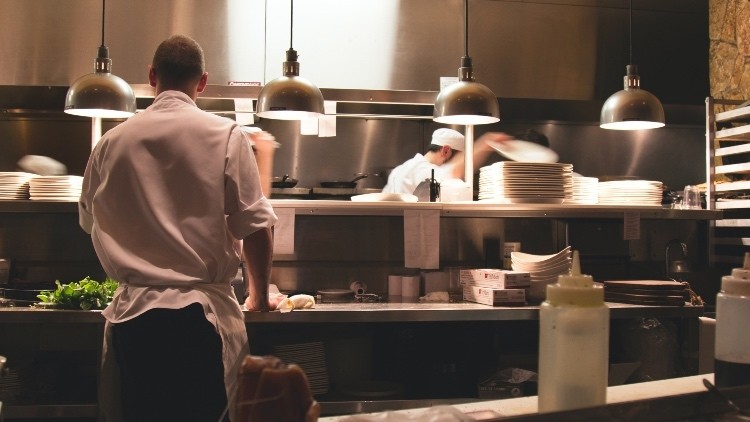Countdown to Brexit
Filling hospitality’s post-Brexit ‘talent hole’

There are now fewer than seven weeks until the Brexit transition period ends and Britain will be forced to either implement a trade deal with the EU or “no deal” World Trade Organisation terms on 1 January 2021.
However, outside of potential pricing fluctuations, the British Institute of Innkeeping’s CEO Steve Alton tells The Morning Advertiser (MA) that a key focus for the pub sector will be on employment as the industry slowly rebuilds footfall levels and consequently a demand for staff.
“In the New Year, as pubs start to trade under more normal conditions and have a need to increase their teams, for many roles they will undoubtedly need to employ from within the UK,” he says.
“Finding and retaining great people will be a challenge, as will upskilling those staff members who are potentially new to the pub trade, providing them with comprehensive training and development.”
Yet, Nick Griffin, chief executive of the Licensees Association believes the impact of Brexit will be felt most keenly in pub business’ ability to recruit to meet staffing demands.
“A reduction in net migration will create pressure on employers who previously recruited from overseas and consequently there will likely be stress put on wage bills at a time when the industry can least cope with it following the pandemic,” he says.
“The quid pro quo to this is that the industry will become more attractive to British workers, particularly the young, and we hope that more training schemes and apprenticeships are put in place to ensure hospitality shines as a career path, something all too often in the past it has sadly failed to do, though we recognise this has been improving in recent years and hope the upwards trajectory continues.
“The alternative some may chose will be to lower the staff to customer ratio, but we would consider this a mistake. Service levels will fall and ultimately this is the wrong path to walk.”
Visa issues
Jamaal Brathwaite, founder and CEO of Manchester-based employment search service Jobseekrs, highlights that an estimated 700,000 (15%) of the 4.5m people who currently work in the British hospitality sector are from the European Union according to statistics from the British Hospitality Association (BHA)
“Between 2011 and 2015, the number of migrant workers increased by 22%, with the majority of these coming from EU countries,” he adds.
However, as a result of Brexit – and associated visa issues – he explains that he has witnessed a decline in the number of people from Europe seeking work in hospitality.
“For example, near where I live, I know, one hotel chain in particular whose hospitality staff (80%+ of bar and waiting) are predominantly from the European Union, have only lived in the UK for at least the last two to three years and are on £14K–£18K/year.
“What this means is with the current visa requirements for any low-skilled, non-UK workers, earning less than £20,480, these staff won’t qualify there would be huge gap to fill after Brexit. Unfortunately, the responsibility will lay on the business owners to fill this gap.
“Whether they will turn to technical solutions which promote self-service to reduce staff overheads or increase staff salaries to make it more appealing for UK residents and meet these visa thresholds, that is yet to be seen especially in an economy and industry crippled by Covid-19.”
Costly to fill post-Brexit vacancies
Ultimately, Natwest Great British Entrepreneur of the Year winner, Peter Kelly, who is CEO and co-founder of Imployable – a service which matches job seekers to their ideal careers by analysing personality traits, qualifications and experience – believes plugging these post-Brexit staff will be very expensive for pub, bar and restaurant operators.
"In 2017 EU nationals made up between 12%-23% of workers in the UK hospitality sector,” he tells The MA. “Since then we have seen an increase in British nationals applying for hospitality jobs, this may have been an effect of the Brexit vote but there are many factors to consider.
“Generally, EU workers in hospitality demand less pay than their British counterparts and, in most cases, are excellent at their jobs, allowing businesses to hire cost effectively whilst ensuring quality to their customers.
“After Brexit, hospitality sector businesses will be faced with two main problems,” he continues. “Firstly, a large portion of eligible, willing workers may leave, creating a talent hole.
“Secondly is cost, with a lot of Britons expecting higher pay, businesses may be forced to pay more to fill the gaps and businesses will be forced to either reduce their margins and swallow the cost or pass the cost to the consumer.
“During a recession, not to mention the coronavirus infection risk, this could be very problematic.”
CIL Management Consultants’ head of consumer Liam McGuinness also believes that after a tough year for the pub sector, Brexit will lay increased staffing costs at operators’ feet.
“The workforce is comprised of a high percentage of EU nationals and some of these will leave the UK as a result of Brexit; those that don’t will need updated employment contracts – an admin-heavy task that will likely give publicans a headache in the short-term,” he explains.
“Additionally, the more UK citizens employed by pubs, the more national living wage they must pay – employment costs will rise. These impacts will be felt more acutely in London and other major cities.”
Pandemic positive?
Surprisingly, however, Kelly argues that one thing the hospitality sector has going for it in terms of sourcing talent post-Brexit is, believe it or not, the knock-on effects of the Covid-19 pandemic.
“A record number of Britons are facing unemployment,” he explains. “Any hospitality sector business that can ride out the pandemic, take the short-term pain, may be able to gain when the country re-opens.
“With huge amounts of people potentially looking for work, there will be more than enough people to fill the hole initially.
“The employment affects, and benefits, towards the backend of this pandemic will not last forever though and benefiting is not a long-term strategy,” he caveats. “As companies start to create new jobs people will undoubtedly revert back to their original career plans."
Ian Cass, managing director of the Forum of British Pubs also forecasts that record redundancies and Brexit-induced staffing gaps in the hospitality sector can dovetail in the short term.
“I also think the large pub companies will target groups of people who have been particularly impacted with unemployment,” he adds.
“The question is will the pubs which are closing reopen. Many may struggle to do so, so we may see lots of empty pubs which end up classed as unviable and changed to other use, in which case we may see a drop in the need for staff.
“I hope not but it’s a potential scenario, depending on what happens with this pandemic which may change people’s behaviour in the future.”
Creative recruitment
When the Brexit training wheels come off in January, Kelly also challenges pubs, restaurants, clubs and bar operators to get creative and think outside the box when it comes to recruitment.
“One thing that strikes me is there is actually a huge talent pool being massively underutilised, ex-offenders,” he says. “There are many hospitality businesses looking to ex-offenders to bolster their work forces already, but there could be more.
“Imagine going through the most devastating year for hospitality in a century with the pandemic and Brexit and coming out the other end as a major contributor to fixing one of the UK biggest social problems.
“As well as fixing a big talent problem for hospitality, on a much wider scale creating a hope for a second chance, helping ex-offenders to become productive members of society whilst having a direct positive impact on mental health, the Police, Home Office, Ministry of Justice and NHS, that is heroic and food for thought."













